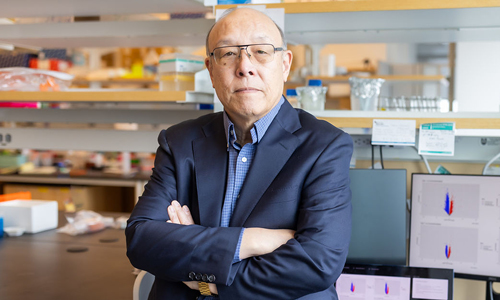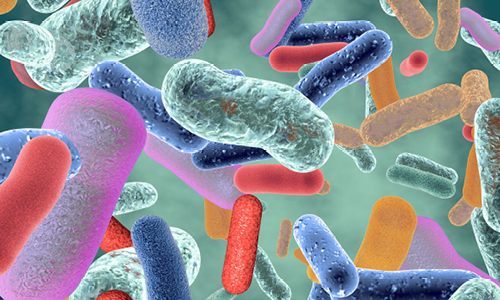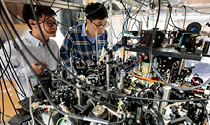|
|
|
|
|
|
| |
The trillions of microbes in your gut not only aid digestion but also influence immunity, metabolism, allergies, and even neurological health. For nearly 25 years, UChicago scientists have been leading research to uncover the complexity of the microbiome with an eye toward assessing and restoring its function. |
|
| |
|
|
|
|
|
|
|
| |
| |
|
|
| |
Eugene Chang, MD’76, is credited with jump-starting a wave of microbiome research at the University of Chicago. (Photography by Nancy Wong) |
|
| |
|
|
|
|
| |
|
|
|
| |
While studying inflammatory bowel diseases, Eugene Chang, MD’76, Martin Boyer Professor of Medicine, hypothesized that the conditions were linked to the gut microbiome—a theory that, almost 25 years later, has sparked a field of research into this complex ecosystem of trillions of microbes. Researchers at UChicago have identified how certain microbes produce metabolites (small molecules that travel through the bloodstream) that affect immune function, metabolism, and disease progression, revealing links between the microbiome and diabetes, liver disease, allergies, immune disorders, and neurodevelopmental conditions. This research is bolstered by advanced technology at places such as a new facility at the Duchossois Family Institute that can manufacture microbiome therapeutics for personalized and precise treatments. |
|
| |
|
|
|
|
|
|
|
|
|
| |
|
|
|
| Brain–gut connection: Two UChicago mouse studies link Alzheimer’s, estrogen levels, and the gut microbiome, prompting further research on how they are related and the implications for disease treatment. |
|
|
|
| |
|
|
|
|
|
| |
|
|
|
| Microbial missteps: Antimicrobial compounds used as food preservatives can harm beneficial gut bacteria while killing pathogens. UChicago researchers aim to harness these compounds’ protective properties while minimizing negative effects on gut health. |
|
|
|
| |
|
|
|
|
|
| |
|
|
|
| AI twin: A new artificial intelligence tool creates a “digital twin” of the infant gut microbiome to predict microbial dynamics and identify risk for cognitive deficits, potentially enabling personalized intervention strategies. |
|
|
|
| |
|
|
|
|
|
| |
|
|
|
| No oxygen, no problem: Certain bacteria use a wide array of metabolites as energy sources in the oxygen-free gut environment, producing compounds that act like natural drugs. |
|
|
|
| |
|
|
|
|
|
|
|
|
|
| |
| |
|
|
| |
UChicago scientists are beginning to understand the “cryptic” plasmid pBI143, but there are still many unanswered questions about it. (iStock.com/image_jungle) |
|
| |
|
|
|
|
| |
|
|
|
| |
A team of current and former UChicago researchers have discovered a plasmid, or a circular piece of DNA, that is abundant in the microbiome of individuals from industrialized areas of the world. Known as pBI143 and initially identified by Emily Fogarty, PhD’23, this type of plasmid is called cryptic by microbiologists as it manages to survive without providing any obvious benefit to its bacterial hosts. This genetic “hitchhiker” rapidly transfers between bacterial species, at times behaving like a parasite—but the researchers theorize that it may at other times pick up extra genes that benefit its hosts. Its prevalence within specific microbiomes, including those of inflammatory bowel disease patients, highlights its potential as a marker for microbial stress and its role within the “core microbiome” of certain populations. |
|
| |
|
|
|
|
|
|
|
| |
| |
|
|
| |
New institute to confront climate change:
The University of Chicago launched the Institute for Climate and Sustainable Growth to take on the intertwined challenges of climate change and economic prosperity. Read about this new initiative in the November µChicago newsletter.
|
| |
|
|
|
| |
Quantum state of mind:
Read about quantum mechanics and explore how the tiniest particles in the universe can have a big impact on the fields of physics, chemistry, computer science, and medicine at UChicago.
|
| |
|
|
|
|
|
|
| |
|
|
|
|
|
| |
| |
Sign up to receive µChicago monthly. |
|
|
|
| |
|
|
|
|





